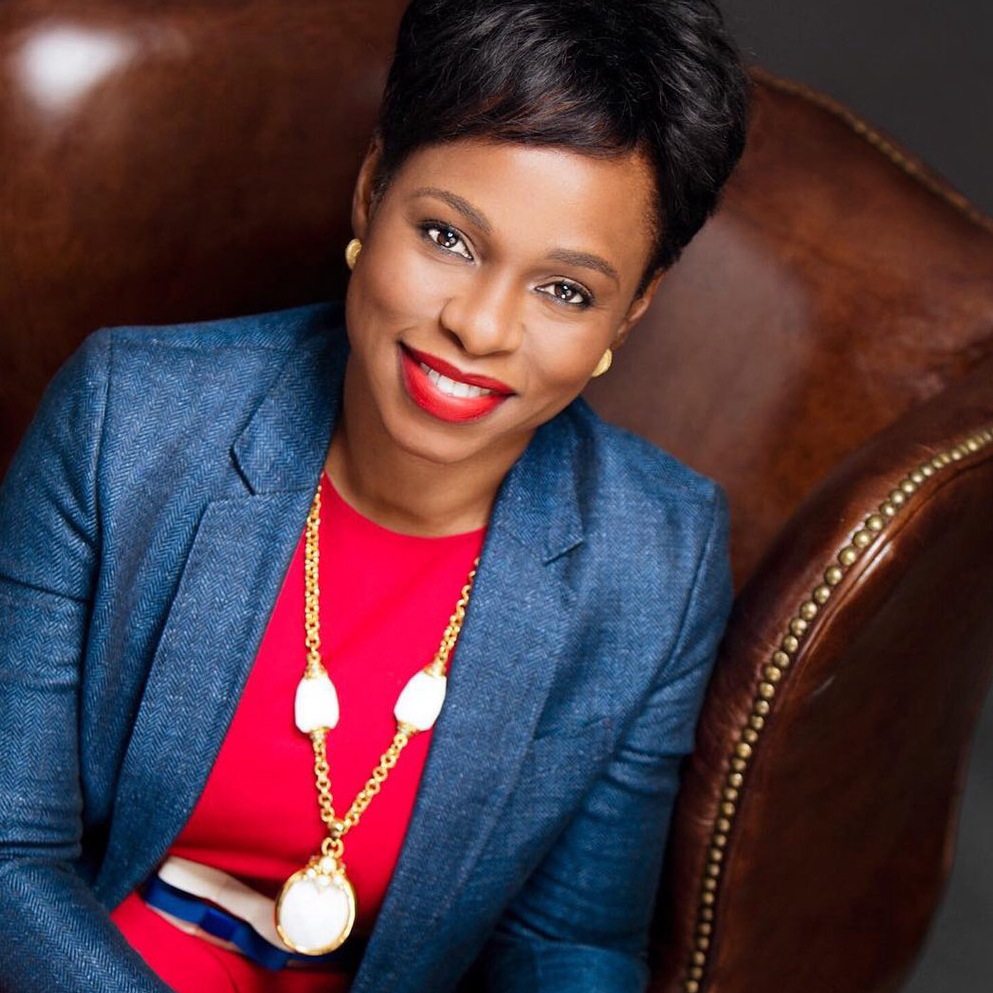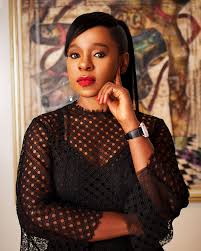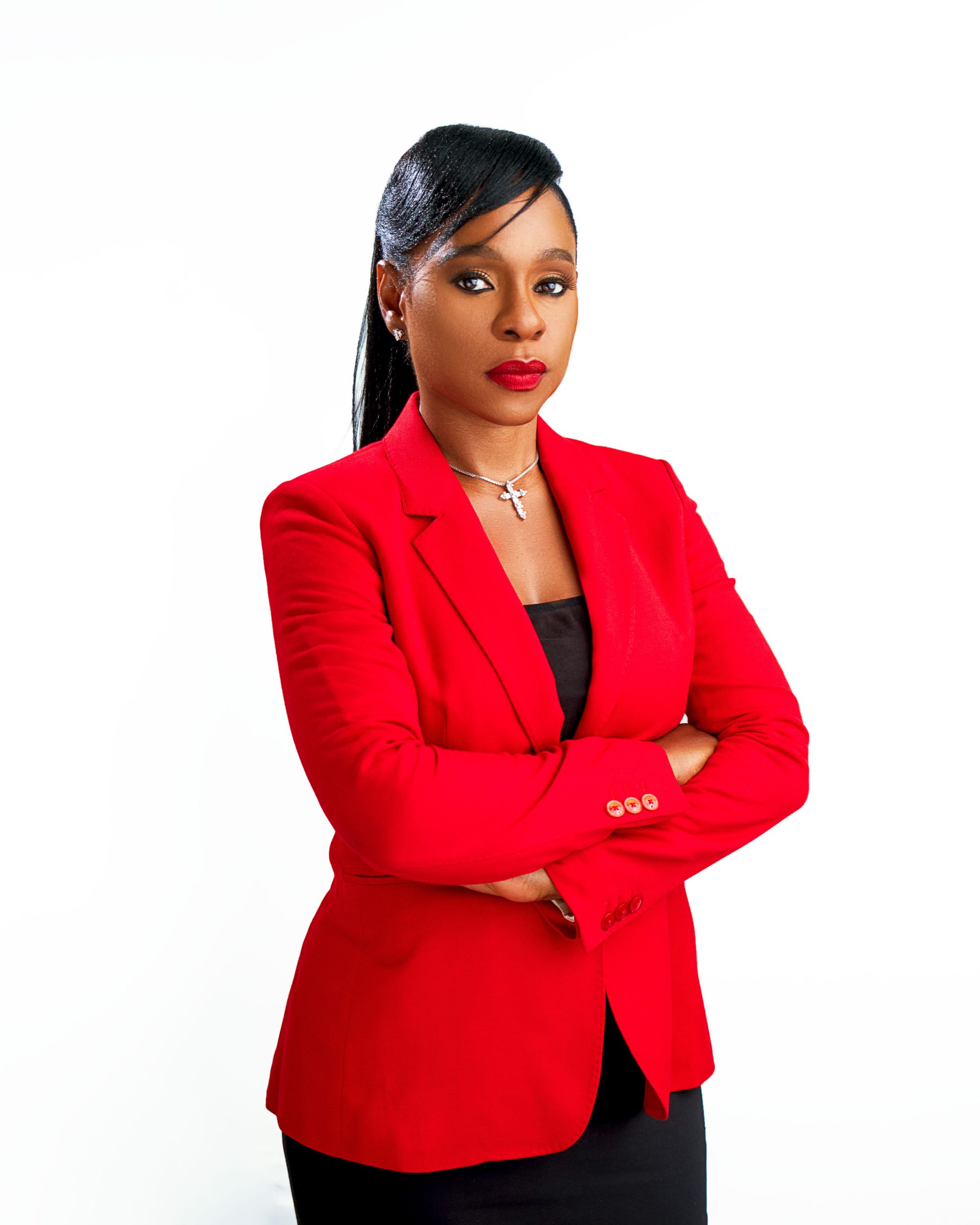Bolanle Austen-Peters, Nigerian Film Director and Founder, Terra Kulture

Bolanle Austen-Peters
Bolanle Austen-Peters is a Nigerian film director, theater producer, and cultural entrepreneur. She is the founder and artistic director of BAP Productions as well as the arts and culture center Terra Kulture in Lagos. She has been recognized with a number of awards for her contributions to the arts.
A Long Pleasant Spell
My childhood was a happy experience. Some memories are hazy now, but I remember that my family, then, was normal. My siblings and I had a good upbringing, with the love and guidance of our parents. I was the last of my mother’s children, though this fact did not earn me any special privilege. Not with the very strict dad I had, and still have. My dad, a lawyer, was highly principled and disciplined. It was he and my mum who raised us and inculcated in us all these values. We used to think he was too hard on us, but we also knew that he loved us very much. He gave us room to be free with him, and to always express our views on issues. My dad raised us to be independent. He also taught us to do things right and to the best of our abilities. I remember if one asked for money, or for one thing or another from him, he’d remind us that in Europe, by the time one is eighteen, one is already independent, living away from one’s parents. He wanted us to be able to face challenges, and to be able to think things through. He laid down some ground rules in the home. One of them was the maximum time one was expected to be back at home. I wasn’t a wayward girl, but there were times I knew I could do without those curfews.
My mum worked with the medical corps of the Nigerian military, and I guess I’ve always liked people in the military because of that. I remember my mum was transferred several times in the course of her job; she was at the Military Hospital, Yaba and the Creek Military Hospital, Ibadan. So, we usually shuttled between Lagos and Ibadan. My mum developed my interest in sports. I swam, cycled, played tennis, badminton, squash, and volleyball.
Read Also: Bimbo Ademoye, Nigerian Actress, Model and Content Creator
We also had a large farm at home in Ibadan, and in the village. I liked going to the farm. I loved the big space, and the feeling of freedom one experienced when involved in an outdoor activity. Every Saturday morning, we used to clean up the poultry farm. We grew a lot of yams and vegetables on the farm. I cannot recall our ever going to the market to buy these. I enjoyed my childhood days. I grew up with some remarkable friends who often teased me on my small stature. They also used to wonder why I exchanged my femininity with the interest in sports. Childhood was one long happy stretch; thanks to the good grounding my parents gave us.
Trained to Care
My primary education was at Mary Hill Convent School, Ibadan and Command Children School Ann’s Barracks, Lagos. From there, I proceeded to the International School, University of Ibadan for my secondary school education. I read law at the University of Lagos and obtained a degree as well from the London School of Economics. I also enrolled in a number of courses in Namibia while I was with the UNDP. Law wouldn’t have been my first choice course, even though my dad encouraged us to study professional courses so we could be on our own. I wasn’t too good in Mathematics then; I liked History so much that I would not have minded pursuing a course in it. But I ended up with law and specialized in international human rights law because I saw an avenue for adventure in it and an opportunity to touch lives.
I worked in my dad’s law firm for about a year and a half before joining the United Nations where I worked with the Center for Human Rights. I was transferred to the High Commission for Refugees and later to the UNDP. It was indeed a lot of fun being with the UNHCR, though not without its rigours. The job entailed a lot of travelling and, sometimes we had to work under critical conditions. One worked and lived with refugees. We travelled a lot throughout East Africa. It was exciting, novel, and sometimes dangerous. I recall once refusing to live in a camp in Kenya because I could hear the noise of lions. Apart from the adventurous side of it, I was exposed to the earth’s poor and their needs. I always felt compassion whenever I saw people living in such extreme poverty and suffering. When you experience such, there is no way you would not be thankful to God. You also experience strong urges to go out of your way and help out the way you can.
READ: Opral Benson (Biography), Iya Oge of Lagos, Fashion Entrepreneur
One could only have survived such moments because of the passion one had for the job, and not for the glamour of it. I mean apart from the rowdiness, some of the refugees had communicable diseases. One had to be friendly and loving in the course of doing one’s job. I had the critical job of resettling refugees in other countries of Europe and America and there was a small quota I had to give. In a camp of sixty thousand, how does one begin to decide who goes and who is left behind? There were times one felt so exhausted because the little one did seemed not good enough in the face of so much pain, lack and need. Generally, those whose medical report indicated negative health could not be resettled in other countries. Still, the fact that one was making a difference, no matter how little helped. I got letters from those resettled expressing their gratitude and at such times I felt really fulfilled.
One particular incident that stands out while I was on the field was when there was an air raid in one of the camps from the SDLA. We got up in the middle of the night, got into the mobile pick-up and called the medical officer, to come and help. We met a terrible situation when we got there. So much blood, crises, confusion everywhere. Many children and adults were hurt. Exposure to such things have left indelible prints on my mind, such that when I arrived Nigeria and settled back into the lifestyle I grew up in, I had grown more in my philosophy of life, had become mature and more robust, and could appreciate the conditions of man’s inhumanity to man and the unpredictability of life.

My Spirituality
I have a strong faith in God, although I’m not given to so much religiosity. I don’t ‘sermonize’ and I believe the Bible is there to let us know all we need know about God and His relationship with us, and vice versa. At the moment, I’m into the children ministry in my church, and my being in the children ministry was purely by accident. Routine attendance of church was getting boring and a lady approached me and suggested we start a children’s Sunday school. I readily agreed because it was a unit in the church that we tend to neglect. So much attention and teaching are given to adult churchgoers at the expense of the children. Yet, the children are the ones to carry on the mantle of leadership in the society. By the time you want to start preaching to a teen, it’s almost getting too late because a large part of his/her personality is already formed. I enjoy being with the children. I leave my weekends free so I can be with them. It was challenging at the initial stage when I was speaking a lot of ‘big grammar’ the children couldn’t assimilate. Over time, I saw the need to make my message understandable and I let them be themselves. We talk about practical things. For instance, I tell them not to be in the camp of those who belittle the potentials we have in Nigeria by seeking every opportunity to leave the country. I also teach them the importance of living with the right values. I believe moulding the lives of those children is a sure way of adding value to society.
Family is Fun
To me, finding a right partner for marriage is sheer luck; though you’ll need more than luck to make a success out of the union. One would think that an individual who looks like a good boyfriend would make a perfect marriage partner. How wrong one can be! People change. The perfect guy of today might change tomorrow, and the lady who is nothing near your ideal woman could end up being your dream of a wife. One also hears and sees cases of two seemingly odd personalities coming together and ending up nicely in a blissful union. I married my husband because he was an extremely nice and intelligent guy. I was not looking for perfect qualities. I knew he was comfortable to be with and I enjoyed his company very much. When it comes to marriage, one should settle for a person who shares similar values with one. For some, it is fame or a wealthy lifestyle they’re comfortable with, so it will do them good look for partners with those values. One should make a thorough examination of oneself and identify the values that are important to you in a marriage partner.
Once one is married, one should be willing to make some compromises here and there. You must be ready to work at your marriage. If I have a good marriage today, it’s not entirely my doing; God has been faithful. My husband is very understanding and practical. For instance, I know how to cook very well but I find it quite boring and frustrating spending so many hours preparing a single meal. Drawing up a timetable for the family makes it easier. But this could be an issue in some homes. Imagine if the man I married were a freak about such things! That’s why I said it’s important to marry someone who shares one’s kind of lifestyle. My husband is my friend; we talk a lot and do a lot of things together.
My husband has been very supportive of my career. He didn’t see my business trips as a threat to our home in any way, and since he is highly accomplished in his business, he encourages me in my business and gives me all the support I need. With marriage comes maturity. I remember when I had my daughter in America. I was all alone, and I burst into tears as I held her in my arms. The knowledge that another life depends on one leaves one with no alternative but to be as efficient as possible.
In relating with kids, consistent patience is top priority. A lot of time they want to have their own way. Maintaining a balance between the work hours and time spent with them is another challenge one faces, but I never forget my responsibilities as a mother. I create the time to play with them and ensure that a close relationship exists between us. I make my home as inviting as possible by spending a lot of time and money on it so that members of the family would always want to rush home at the end of the day.
Women are Tough
Women should work in order to experience fulfilment and a rise in their self-esteem. Though the society is patriarchal, women should be more inward looking, determine what is good for them and go for it. The problem is most women are afraid of what the society would think of them and this way, they are kept in the class of mediocrity. It is true that they should live within the values of the society, but they should not allow this to affect their self-worth. A woman should go for what makes sense to her without being unnecessarily emotional. It is true the home exerts a lot of demands but women should stop being docile about everything. They should instead, make efforts to exercise their intellectual capacities.
However, I don’t think the average Nigerian woman is discriminated against in the actual sense of it. It’s only that women have accepted to be at the mercy of societal dictates. The Nigerian society is an open one; because of religious or cultural bias, women are treated differently. For instance, in my own case, I know that sometimes at work, the authorities are considerate about where a female staff is sent. That, to me, is an advantage. But a woman also experiences the other side of the coin. For instance, during meetings, the men could be very condescending in their attitude to a woman but then, it is left for the woman to be assertive and let them know her stand. It’s easier to command such respect if the woman is a very diligent person on her job and knows her worth. I sincerely don’t believe that there is a concerted effort in the Nigerian society to bring women down. The reality is that we live in a patriarchal society, but the law in no way supports abuse against women. If there are still some archaic laws with regard to matrimonial laws, our women legislators should look into such and make a difference. In the home, there is need for submission on the part of wives because two captains cannot stir a ship at the same time, and that should create no problem as long as the person at the wheel is doing what is required of him. I think Nigerian women are tough and resilient.
Terra Kulture
The establishment of Terra kulture was borne out of the desire to promote Nigeria and raise awareness about Nigeria. There are very few places that you can go to and get vital information on Nigeria; information with regard to our food, literature, arts, languages and fashion. We wanted to promote us, our culture in its entirety. Terra means something that brings up life; we wanted a return to our roots because we saw the dire consequences of losing our culture. We have cases of Nigerian kids who know next to nothing about their culture. The institution provides the right atmosphere, and an enabling environment to learn about and appreciate our roots. We started operations in 2003 and the response has been overwhelming both from the locals and the expatriates. The institution is like a tourist destination and we’re building up our data, facilities and resources. We organize cultural exhibitions. For instance, we organized a big fashion parade, showcasing a wide array of Nigerian clothes. We have arts and craft classes that teach traditional Nigerian crafts, i.e. pottery, tie and dye, basket making. We also have language classes, where one could learn Igbo, Yoruba and Hausa. Basically, the artistes that are united by the institution are the indigenous performing artistes. There are publishers as well that supply us Nigerian books of international standards, and one could buy artwork here as well. We enjoy much support from the press and the Ministries of Information and Culture and Tourism.
One of the earlier challenges we had was operating in an environment that lacks easy access to basic social infrastructure, like water and electricity. The challenge is still very much present, but with time, we have been able to manage it. We spend so much on these every month. Telecommunication has got better because of cell phones. Getting the right workers was another major challenge, as a lot of people did not have adequate training and the required educational qualifications. We tend to forget that the Western countries that threaten to wipe away our indigenous culture spend huge amounts of money exporting their culture. Nigerians haven’t started doing that. The fact that we are in existence today is in itself an achievement. We’re making our own efforts. The real challenge now is to continue to churn out good quality programmes while sustaining the existing infrastructure.
See Outstanding Careers
Related posts:
- Aisha Oyebode: Solid foundation
- Bolanle Awe (Biography), Renowned, Historian, Scholar and Administrator
- Dora Akunyili (Biography), Former Director General, NAFDAC
- Bamidele George (Biography), Founder/President, Strong Tower Mission
- Chichi Aniagolu (Biography), Country Representative, Ashoka
- HerStory Abuja 2025: How Women’s Stories Are Shaping Social Change

